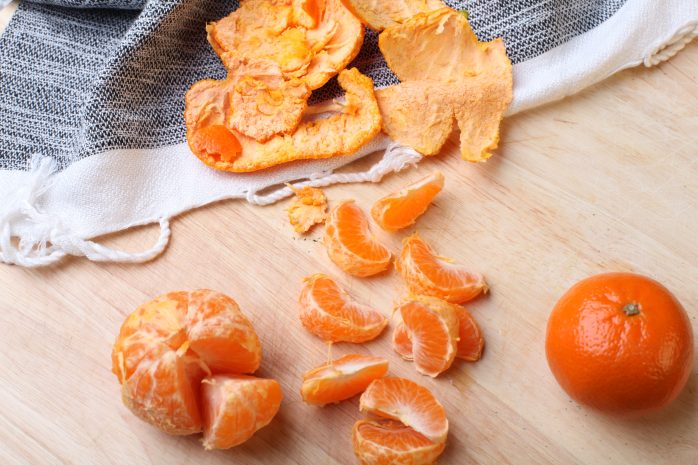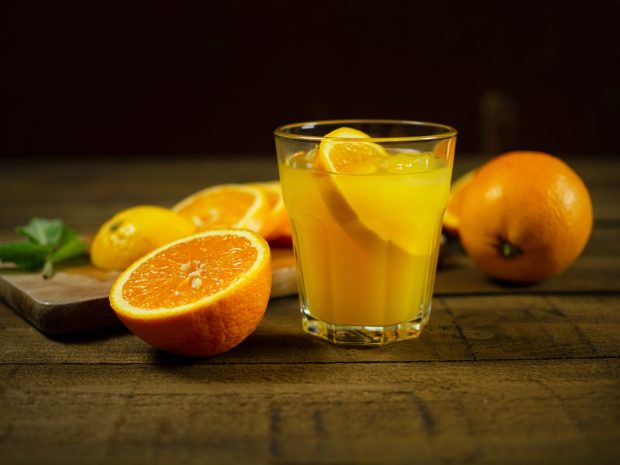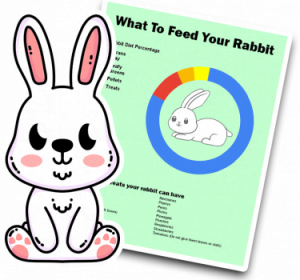
Rabbits have such a fragile gut which makes any owner cautious about what they introduce into their rabbit’s diet. But, the simple answer is yes, rabbits can eat oranges in small portions due to their sugar content.
Fruits can be a part of your rabbit’s diet, but they should be fed in moderation as a treat. Fruits contain sugar, leading to obesity and other health issues if consumed in large amounts.
In this article, we will review what portion of orange to give your rabbits and the pros and cons of this citrus fruit.
Yes. Oranges are a fantastic fruit for nutrients and, arguably more importantly, taste! Oranges have lots of Vitamin C and are extremely juicy. Pair this with their smell, and you’ve got yourself a treat!
To ensure your rabbit enjoys the benefits of oranges without the risks, you should follow these guidelines we’ve created:
When introducing oranges to your rabbit’s diet, start with a small piece to see if they enjoy it and monitor their reaction. Some rabbits may not like the taste or have an upset stomach after eating oranges.
Much like pellets, we suggest doing portions based on your rabbit’s weight. At the start, try with a quarter of 1 slice of orange and be ready with some tissues! It’s going to get messy!
Feed your rabbit a small piece of orange (without the peel) once or twice a week. Remove any seeds, as they can pose a choking hazard.
Always monitor your rabbit’s health after feeding them oranges or new foods. Look for signs of digestive upset, such as diarrhea or changes in appetite. If you notice any adverse effects, discontinue feeding oranges and consult your veterinarian immediately.
Oranges contain vitamins and nutrients, such as vitamin C, potassium, and fiber. These nutrients can boost rabbits’ immune systems and help maintain their health. Here are some of the key nutritional benefits:
Remember, while oranges offer several nutritional benefits, they should only be fed in small quantities and as an occasional treat due to their high sugar content. Overfeeding fruits can lead to obesity and other health issues in rabbits.
| Nutrient | Common Orange |
|---|---|
| Water | 86.75g |
| Carbohydrates | 11.75g |
| Fat | 0.12g |
| Protein | 0.94g |
| Dietary Fiber | 2.4g |
| Vitamin C | 53.2mg |
| Sugar | 9.35g |

While orange peels are not toxic to rabbits, they are not recommended as a part of their diet. The main concern comes from peel waxings and pesticides which can make your rabbit incredibly sick and not the orange skin itself.
If you do give your rabbit orange peel, ensure it’s only in small quantities and not as a replacement for the rest of their balanced diet.
There are several reasons why you should avoid feeding orange peels to your rabbit:

If you want to give your rabbit a small amount of orange juice, that’s not a problem, but it’s not to be a substitute for your rabbit’s water intake. If your rabbit is poorly, a small drop of orange juice in their water may help hydrate them, although results can vary.
Orange Juice, among other citrus fruit drinks, contains excessive amounts of sugars and not entirely natural sugars. This comes in the form of additives added to the juice solution.
You may find Sucrose in many orange juices, this is a sugar compound that isn’t dangerous, but the quantity causes potential problems.
The Univesity of Western Ontario conducted a study showing that orange and grapefruit juice decreased cholesterol excretion in rabbits who may suffer from generally high cholesterol. This number can drop cholesterol down by 44-48%.
This was associated with total liver cholesterol reduction in the orange juice group (-18%, p < 0.05) and with hepatic cholesterol ester reduction in both juice groups (-42%, p < 0.05).
E.M.KurowskaPh.D. N.M.BorradaileM.S. J.D.SpenceM.D. K.K.CarrollPh.D
Yes, rabbits can eat oranges, However, they are extremely high in quantities of sugar and should typically be swapped out with other fruits & vegetables.
Excessive counts of Vitamin C in a diet can result in kidney damage, due to this, we would suggest replacing oranges with other fruits and vegetables with skins such as apples.
Some other citrus fruits can be mislabelled as oranges, as they are part of the orange family, these can inlclude Tangerines, Satsuma, Kishu Mikan, Tachibana Orange & Ponkan.
Mandarin oranges are still safe to give your rabbit and is often considered healthier as it has less sugar per slice.
Before giving your rabbit any oranges, make sure to peel them completely and remove any of the pith (Which stringy parts of the orange). Both the skin and pith have almost no nutritional valur and should be avoided.
From here, you will want to give your rabbit one slice at a time, if you can cut it up, that’s even better but extremely messy!
Rabbits can consume other citrus fruits, for example, they can eat small portions of tangerines, satsumas, grapefruit, clementines & mandarins. However, these all have extremely high levels of acidity and can impact your rabbits gut leading to GI Stasis.
Additionally, these fruits all contain high levels of sugar which can lead to obesity.
Oranges, much like its cousin, the Satsuma, is extremely sweet and full of natural sugars. Oranges have an incredible amount of Vitamin C but a fairly noticeable amount of fiber.
They contain around 91% Carbohydrates, 7% protein and 2% fat. This unfortunately means that despite them being extremely juicy they do offer the least amount of nutrients, vitamins and minerals to sugar ratio.
You would be better offering your rabbit a treat like a Strawberry.
Much like normal Oranges, rabbits can eat many other citrus fruits including mandarins, tangerines, clementines, satsumas, and grapefruit in smaller portions.

By entering your email address you agree to receive emails from Cottontailclub. We'll respect your privacy and you can unsubscribe at any time.